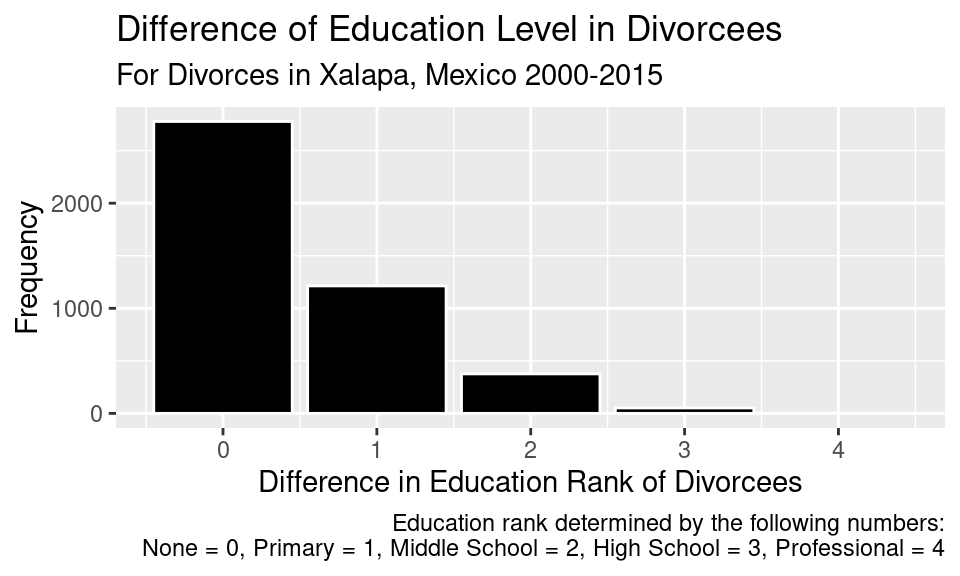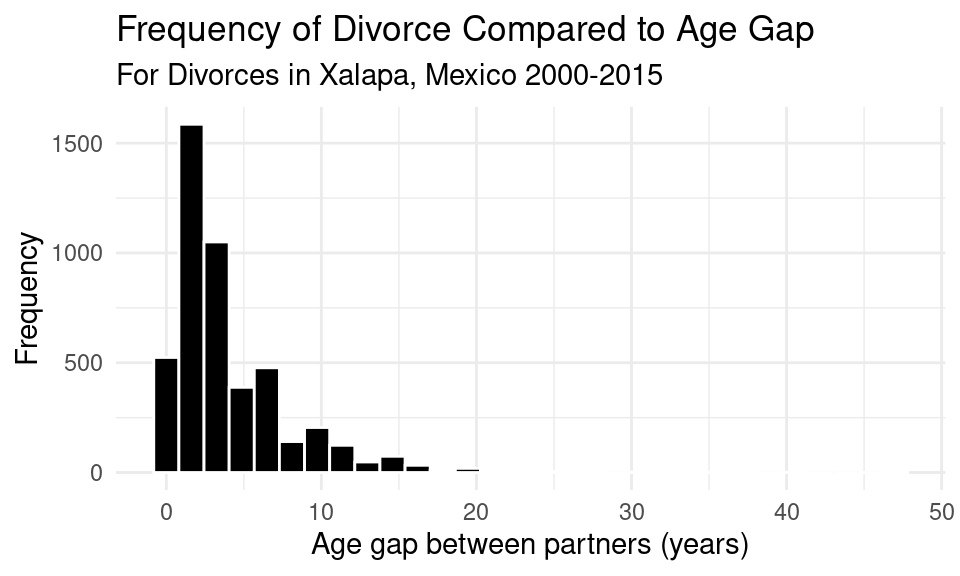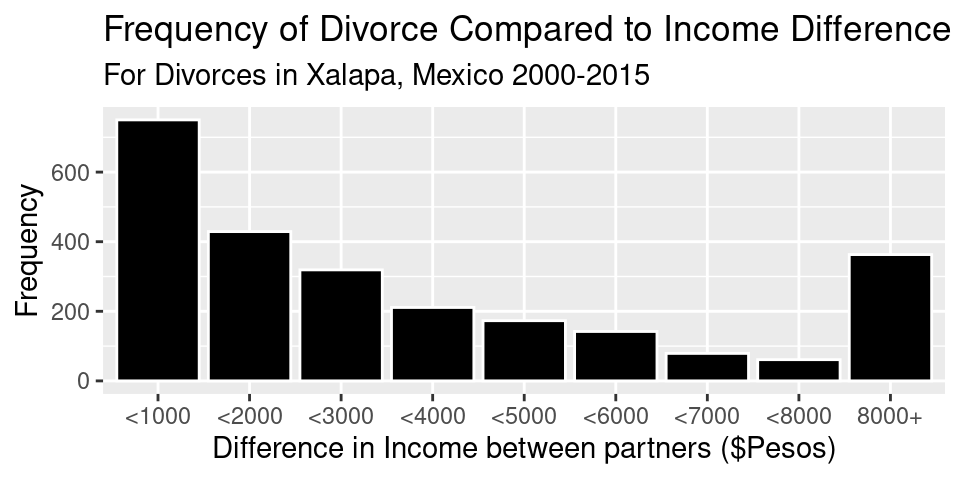
Analysis of Divorce Trends
Data from Xalapa Mexico
5/5/23
Induction to Topic and Motivation
Data collected from divorce records filed in Xalapa, Mexico between 2000-2015.
Our analyses focus on observing any trends between the characteristics of the two people getting the divorce and the frequency of divorces.
We focused on the education level, income, and age gap of those getting the divorce.
Introduce the data
The data represents divorces filed in Xalapa, Mexico over the years 2000-2015.
Data set was created by the Mexican marriage bureau and who keeps records of all of the divorce cases.
The 41 columns characterize the divorce, when it was registered, the reason for the divorce, etc…
Age_partner_man, Age_partner_woman:
education_man, education_woman
Monthly_income_man_peso, Monthly_income_woman_peso
Highlights from EDA
Tidied data and created a variable of the couples’ age gaps
Most divorces had couples with lower age gaps

Visual Analyses


Interpretation and Evaluation of Significance
Education Analysis:The calculated p-value was 0, meaning we reject the null hypothesis. Therefore, there is a significant difference in the education level between divorcees with a mean difference of around 0.48156.
Age Gap Analysis: The calculated p-value was 1, meaning we fail to reject the null hypothesis. There is no significant evidence that the true mean age gap of divorcees is greater than 5.
Income Analysis: After dropping the outliers we obtain a p-value of 0.12 so we fail to reject the null hypothesis. There is no significant evidence that the true mean difference in income between the individuals being divorced is not 0.
Conclusions + future work
Of the factors analyzed (education, income, and age differences), only education differences seemed to play a significant role in divorces
The interpretations could be wrong due to us not being able to compare divorce rates to total marriage rates
Future works could include finding marriage rates and analyzing those alongside divorce rates
And we could examine data from different parts of Mexico, or nationally.